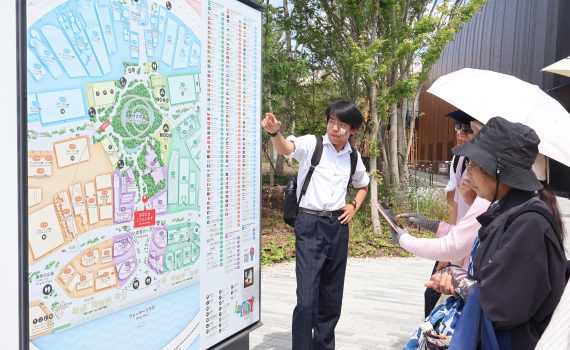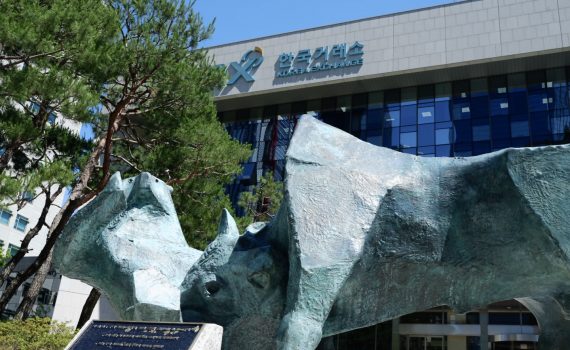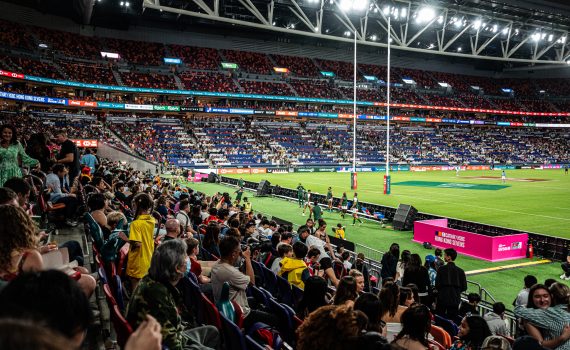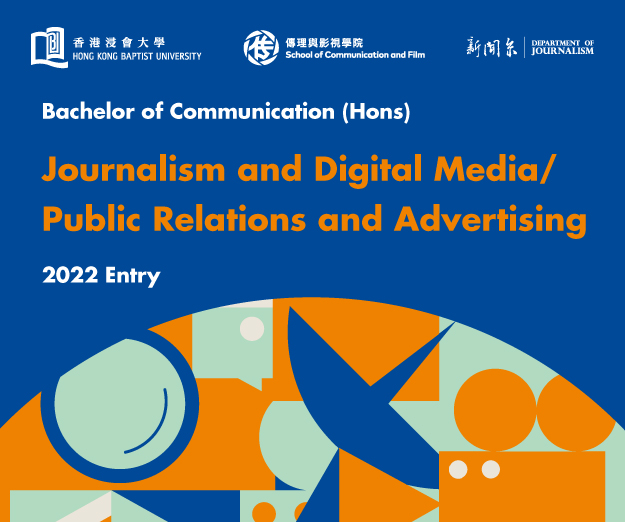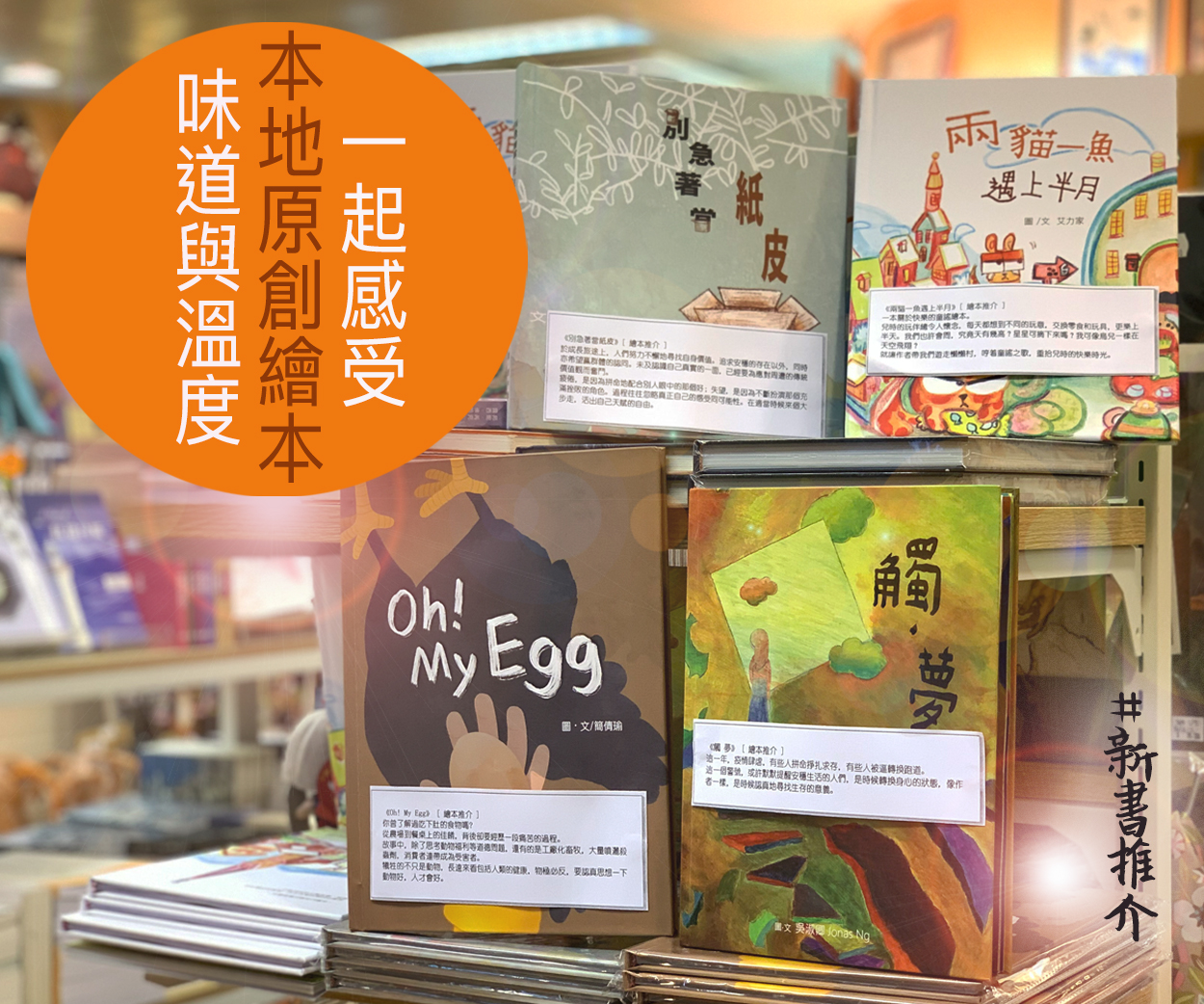The Young Reporter
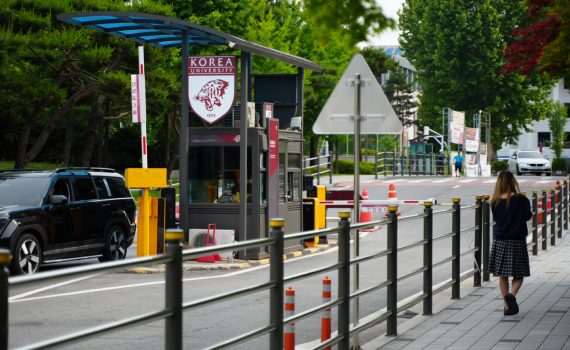
South Korea Presidential Election 2025: Students Embrace AI's Future Potential While Questioning Candidates' Preparedness for Tech Leadership
Young voters in South Korea expressed different views on increasing funding for AI development, as some presidential candidates have mentioned AI in their speeches, amid the country's rising financial input for technology research and development. “I think it’s kind of a waste of money because we already have technologies like GPT, and China has DeepSeek. Developing AI requires a lot of information and money,” said Kim Jun Young, an English Education student at Korea University. “Still, we don’t really have sufficient resources to compete on the same level,” she added. Park (assume name), 26, majored in computer science, has also expressed doubts about the practicality and feasibility of AI policies proposed by different candidates. “ I’m doubtful whether they can achieve meaningful advancements in this field,” he said, adding that he thinks many candidates do not understand AI much. South Korea recently increased the research and development budget for 2025 by 16.1 percent year-on-year to a record high of KRW 24.8 trillion (HK$ 141.4 billion) with a focus on cutting-edge technologies such as artificial intelligence (AI), biotechnology, and quantum technology. The ambitious investment aims to position South Korea as a global leader in these fields. Lee Jae-myung, the presidential candidate of the Democratic Party, who leads the poll, has identified AI, renewable energy, and the cultural industries as essential tools for addressing South Korea’s economic challenges meanwhile Kim Moon-soo, first runner-up in the poll, from the conservative People Power Party, promote himself by creating a joint fund to boost AI development. Meanwhile, Lee Jun-seok, the youngest candidate among all, representing the Reform New Party, emphasises the importance of data freedom in AI development and highlights the role of Large Language Models (LLMs) in advancing the industry. AI has become a core driving force for national development, with applications spanning industries …
- 2025-06-03
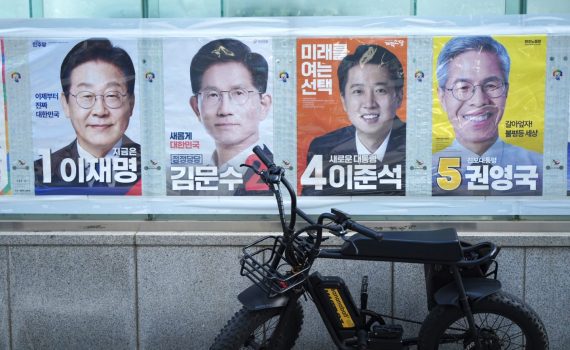
South Korea Presidential Election 2025: Young voters see the economy as one of their major concerns amid economic downturn
Young voters in Seoul consider the economy one of the major concerns heading into the South Korean 21st presidential election, which takes place on June 3, as South Korea’s central bank cut the basic interest rate by 25 basis points days before to counter the current economic downturn. “The current (economic) situation is really bad, everything is becoming more and more expensive,” said Victoria Kim, a psychology student at Yonsei University, who gave up travelling abroad but visited cities inside South Korea instead because of the depreciation of the South Korean won. South Korea's won weakened sharply after ex-president Yoon Suk Yeol declared emergency martial law, causing a democratic crisis in the country on Dec. 3, 2024, and hit a record low in nearly 16 years after Trump’s declaration of a 25 percent tariff against Korea-manufactured goods in April. While the South Korean benchmark stock index, KOSPI, moved higher and broke a 10-month record high at 2,720.64 on May 29, boosted by tech shares, which strengthened the won against the USD, this was mainly triggered by the US trade court’s blockade of Trump’s global tariffs. For Kim, the economic uncertainty extends beyond travel decisions to her everyday expenses. “I like to be a vegetarian and eat lots of veg and fruit at home, and with the recent price rises it’s a burden to buy and eat,” said Kim, working part-time in Seoul apart form college right now. Being eager to enjoy cultural life, Kim must continue working to save money, which makes her feel frustrated and negatively impacts her mental well-being. Jerry (assumed name), a student in the Korea University department of Humanities, sees social welfare for low-income groups as the key issue in his vote, and is looking for substantial and implementable funding policies to support the research and …
- 2025-06-02

Budget 2025 Key Takeaways: Balance public expenditure and maintain Hong Kong’s competitiveness
Hong Kong’s Financial Secretary Paul Chan Mo-po delivered the 2025-2026 Budget speech on Wednesday. He said that “strictly containing public expenditure is a must” and it is crucial to strive for a balance among restoring fiscal balance and lowering potential impacts that may arise. For the coming fiscal year, the total government expenditure will increase by about 8.9% to HK$822.3 billion, while the total government revenue is estimated to be HK$659.4 billion. Chan expects that there will be a deficit of HK$67 billion for the year, and fiscal reserves will decrease to HK$580.3 billion. Here are the key takeaways of this year’s budget plan.
- The Young Reporter
- 2025-03-03

LGBT-friendly gyms provide safe environment for non-binary bodybuilders
There are more than 10 LGBT-friendly gyms in Hong Kong, targeting the LGBT+ community in Hong Kong. It is to provide a comfortable place for the LGBT and to ensure they feel safe and secure. Reported by Henry Siu Tsz-hang, Richard Chen Xiyun Edited by Canny Lau Lok-tung
- The Young Reporter
- 2025-06-23

Hong Kong Rope Skipping Championship debuts in shopping mall
Hong Kong Rope Skipping Championships 2025 organized by Hong Kong Rope Skipping Federation (HKRSF) was held on March 8 at Olympian City 2. Previously held in the Yuen Long Jockey Club Building Sports Centre, this is the first time this competition was held in a shopping mall. “In the gym, only the family and friends of the athletes would be there to watch, but in the mall, many passersby would also stop and watch the game,” said Leung Kin-lok, 31, a member of Rope Skipping Sports Federation of Hong Kong. More than 400 players participated in this competition, the highest in five years. The event features speed and endurance races, as well as synchronised and wheel fancy dress races. “The mall provided us with site and security assistance, and we brought more foot traffic to the mall,” Leung said. “I think the change of venue this time is quite a successful breakthrough.” “By holding activities in places with a larger flow of people, we hope that more people can learn about the skipping rope culture and join this sport in the future,” said Leung. Kwok Long-yin, 13, said that he has been participating in this competition for 4 years, but competing in the mall really gives him a very special and enjoyable experience. "The atmosphere is great and many passing spectators cheer us on, which gives me greater confidence,” Kowk said. Since 2014, The Olympian City has been regularly organizing sports-related events, such as the Hong Kong Breakdancing Team Selection Competition and Summer City Sports Carnival. This rope skipping competition is held annually and it is the only selection for the Hong Kong China Team recognised by the International Rope Skipping Organisation. For this competition, only members of the HKRSF are eligible to participate. Competitors who score 20 points within …
- The Young Reporter
- 2025-03-11

Tropical cyclone Alfred to hit Brisbane, bringing destructive winds and heavy rainfall
Tropical Cyclone Alfred, South East Queensland’s first tropical cyclone in 50 years, is predicted to make landfall on Australia’s eastern coast with dangerous winds and heavy rainfall on Friday night or Saturday morning. The more than 2.5 million people in Brisbane may experience winds of up to 120 kilometres per hour and up to 200 millimetres of rain by Saturday, according to the Bureau of Meteorology, As of Thursday, BOM stated that Alfred was still over 200 kilometres east of Brisbane, but may bring damaging storm tides and major flooding when its centre crosses the coast on early Saturday. Alfred is the first cyclone to hit the region since Cyclone Zoe in 1974, less than two months after Cyclone Wanda flooded 13,500 homes. Cyclone Alfred, a category 2 cyclone, has winds with an average maximum speed of 89 to 117 kilometres per hour, A category 2 cyclone is destructive enough to damage infrastructures, cause power outages, and uproot trees, said Xiaocheng Yu, a climate science researcher at the University of Queensland. “Due to its stable circulation pattern, Alfred is expected to stall near Brisbane, increasing the risk of intense and prolonged rainfall,” she said. She mentioned that intense rainfall could lead to flooding, especially in Brisbane, where a river runs through it. “Tropical cyclones are small-scale, high-variability systems, making accurate predictions challenging,” she added. She encourages the public to stay indoors and take precautions to protect their homes and garages from flooding. Brisbane resident Taneen Estah, 19, said she is concerned. “I’ve never experienced one. Nobody in my family knew until yesterday. We live on a hill, so we might not experience flooding, although we may be stuck at home for a few days,” she said. Estah said she struggled to stock up on necessities due to panic-buying at supermarkets. …
- The Young Reporter
- 2025-03-07

Photo Gallery: South Koreans choose their new president after six months of political chaos
The South Korean presidential election wrapped up with liberal party leader Lee Jae-myung winning the presidency and being sworn in on June 4, bringing an end to six months of political chaos since martial law. Lee Jae-myung won with 49.42% share of votes, amounting to 17,287,500 ballots, the largest number of votes in South Korean presidential election history, according to Yonhap News Agency, while voter turnout reached 79.38%, the highest since 1997, reflecting a high level of public mobilisation. Besides Lee’s victory, Kim Moon-soo, leader of the conservative People Power Party, received 41.15% of the vote, as the previous party leader’s martial law declaration received wide criticism, with Lee Jun-seok of the Reform New Party securing 8.34% of the votes, who emphasised on political reform and youth empowerment. The remaining two candidates, Kwon Young-guk and Song Jin-ho, received 0.98% and 0.1% of the votes, respectively. According to a May poll conducted by Gallup, there were notable differences in support rates across age groups. Lee Jae-myung enjoyed higher support among people in their 40s and 50s, while Kim Moon-soo was more favoured by those in their 60s and 70s. And Lee Jun-seok received relatively greater support among younger voters. South Korea faced significant disruptions in high-level diplomatic activity following ex-president Yoon declaring martial law on Dec. 3, 2024, with domestic investors suffering “roller coaster” fluctuation of both the stock market and currency, also driven by the tariff policy initiated by US President Donald Trump. With concerns for the country’s social and security landscape raised, Lee outlined five key missions for his administration during his victory speech, including ending internal conflict, achieving national unity, revitalising the national economy, ensuring national security, and maintaining stability on the Korean Peninsula. “This is a world where things like martial law shouldn’t exist”, said Lee Eungyeong, …
- The Young Reporter
- 2025-06-05

South Korea Presidential Election 2025: Young voters see the economy as one of their major concerns amid economic downturn
Young voters in Seoul consider the economy one of the major concerns heading into the South Korean 21st presidential election, which takes place on June 3, as South Korea’s central bank cut the basic interest rate by 25 basis points days before to counter the current economic downturn. “The current (economic) situation is really bad, everything is becoming more and more expensive,” said Victoria Kim, a psychology student at Yonsei University, who gave up travelling abroad but visited cities inside South Korea instead because of the depreciation of the South Korean won. South Korea's won weakened sharply after ex-president Yoon Suk Yeol declared emergency martial law, causing a democratic crisis in the country on Dec. 3, 2024, and hit a record low in nearly 16 years after Trump’s declaration of a 25 percent tariff against Korea-manufactured goods in April. While the South Korean benchmark stock index, KOSPI, moved higher and broke a 10-month record high at 2,720.64 on May 29, boosted by tech shares, which strengthened the won against the USD, this was mainly triggered by the US trade court’s blockade of Trump’s global tariffs. For Kim, the economic uncertainty extends beyond travel decisions to her everyday expenses. “I like to be a vegetarian and eat lots of veg and fruit at home, and with the recent price rises it’s a burden to buy and eat,” said Kim, working part-time in Seoul apart form college right now. Being eager to enjoy cultural life, Kim must continue working to save money, which makes her feel frustrated and negatively impacts her mental well-being. Jerry (assumed name), a student in the Korea University department of Humanities, sees social welfare for low-income groups as the key issue in his vote, and is looking for substantial and implementable funding policies to support the research and …
- 2025-06-02
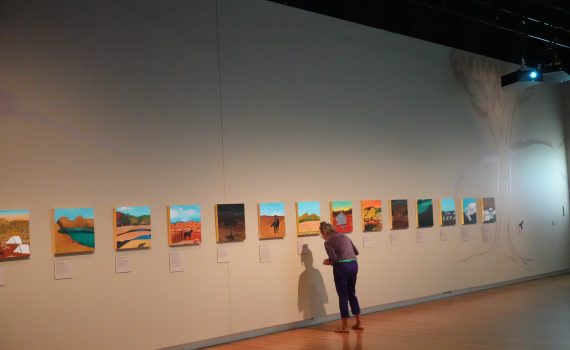
As Australia’s Indigenous Languages Disappear, Experts are Working to Save Them
Indigenous languages in Australia are endangered. Australia has more than 250 Indigenous languages and around 800 dialects, but only 150 are still spoken today, according to the Australian Insitute of Aboriginal and Torres Strait Islander Studies, From European colonisation in the 18th century until the mid-20th century, Aboriginal communities were forbidden to speak their Indigenous languages. Now, most fluent speakers are elders and younger generations often don’t speak them at all. Last month, the Australian government unveiled its 2025 budget which included AU$ 3.6 million to continue digitising at-risk audio and video collections of Indigenous languages. We spoke to experts working on preserving and revitalising these languages for the next generation.
- The Young Reporter
- 2025-04-30
Advertisement


